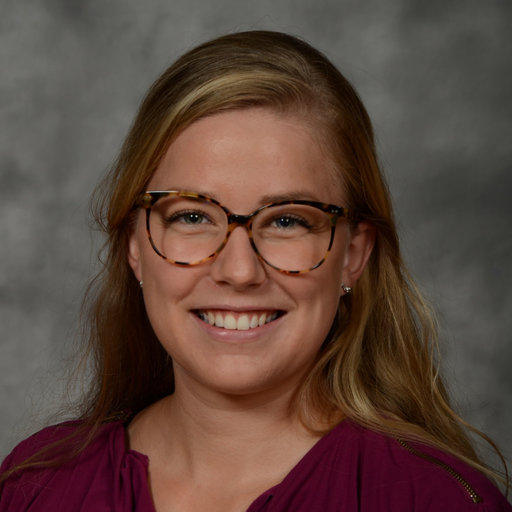
Global Seminar Spotlight: Markéta Podebradská
This is a continuation of our "IANR is Global" series, which highlights the many ways internationalization is woven through the Institute of Agriculture and Natural Resources: through research collaboration, government and private industry partnerships, extension work, student educational experiences and the IANR community from around the world.
This edition is specifically focused on the many global voices we have or have invited to campus who will be sharing their expertise through seminars during fall semester 2020. Markéta Podebradská, Ph.D. candidate in the School of Natural Resources, will be sharing a seminar entitled "Forage Production Models and Predictions for Semi-Arid Grasslands" on Monday, November 30 at 3:00 p.m. as part of the Center for Grassland Studies' Fall Seminar Series. We appreciate the expertise we are fortunate to have from all over the world, as shown by their many and varied contributions to the work of the university and our continued mission to create a globally engaged institution. To this end, we want to help our campus community get to know each other (and the world) more, starting with these experts.
Where is home for you? Where did you receive your education?
My hometown is Prague, the capital city of Czech Republic, which is a small but beautiful country located in the center of Europe. I got my bachelor’s degree at the University of Life Sciences in Prague, where I studied applied ecology. I’m currently a Ph.D. candidate at UNL, School of Natural Resources, hoping to finish my degree in summer 2021.
Tell us a little about your path to where you are now.
I’ve always been interested in weather and climate. When I was a kid I wanted to be a meteorologist. After finishing high school I decided to study ecology because I’ve always loved the outdoors and nature in general, and because it can also involve weather and climate. When I was in the third year of my undergrad, I received the Robitschek Scholarship that brought me to UNL for one year as an exchange student. During that time I had a chance to take a lot of weather and climate related courses and I absolutely loved it. That was when I decided to incorporate more climate science into my future research and education. During the exchange year I also worked as a student intern at the National Drought Mitigation Center, that is affiliated with the University. Thanks to them I was able to return back to UNL to pursue my doctoral degree.
What is something people don't know (or that you wish they knew) about where you're from or where you do your international work?
Czech Republic is a really small country, but it is absolutely beautiful and it has produced some extraordinary people in fields like science, literature, politics, and sports. Czechs are very self-critical but have a great sense of humor. For example, the national competition for the Greatest Czech in the history of the nation was won by a fictional character Jára Cimmrman (later disqualified for being fictional) who was created in the 20th century by famous Czech humorists. I believe these characteristics stand behind successful Czech people.
Are you involved in any international collaborations?
When I was working with the National Drought Mitigation Center, which collaborates with many international organizations, I was engaged in a few international projects that involved scientists from South Korea and Czech Republic. I think international research partnerships are really important because they bring different perspectives in the specific project. Additionally, in the future I would like to focus more on climate change which is a global problem that needs to be addressed on international scales.
Why is it important for institutions like the University of Nebraska to create opportunities to hear from people with diverse, global experiences?
I think that even though the world might be more connected than ever, we still mostly live in our limited social groups. Hearing from people with different opinions, cultures, religions, and life experiences in general is extremely important to evolve on both personal and societal levels. UNL opened my eyes in terms of how higher education and research can be done much better than in my home country. It also gave me so much perspective on many global issues. On the other hand only after I came to the USA, I was able to fully appreciate my home country and set my life priorities. Learning from this experience I think I can be a better person and bring more back to my community.
What is one piece of advice you would share with students, especially those interested in an international career?
Don’t be afraid - travel, explore, and be excited about the things you do.
Be sure to tune into Marketa's seminar at 3:00 p.m. CST on Monday, November 30.
---
Are you giving a seminar in spring 2021 (or the future) and have an international element to your work, studies or experiences you'd like to see highlighted? Contact Brianne at bwolf4@unl.edu.